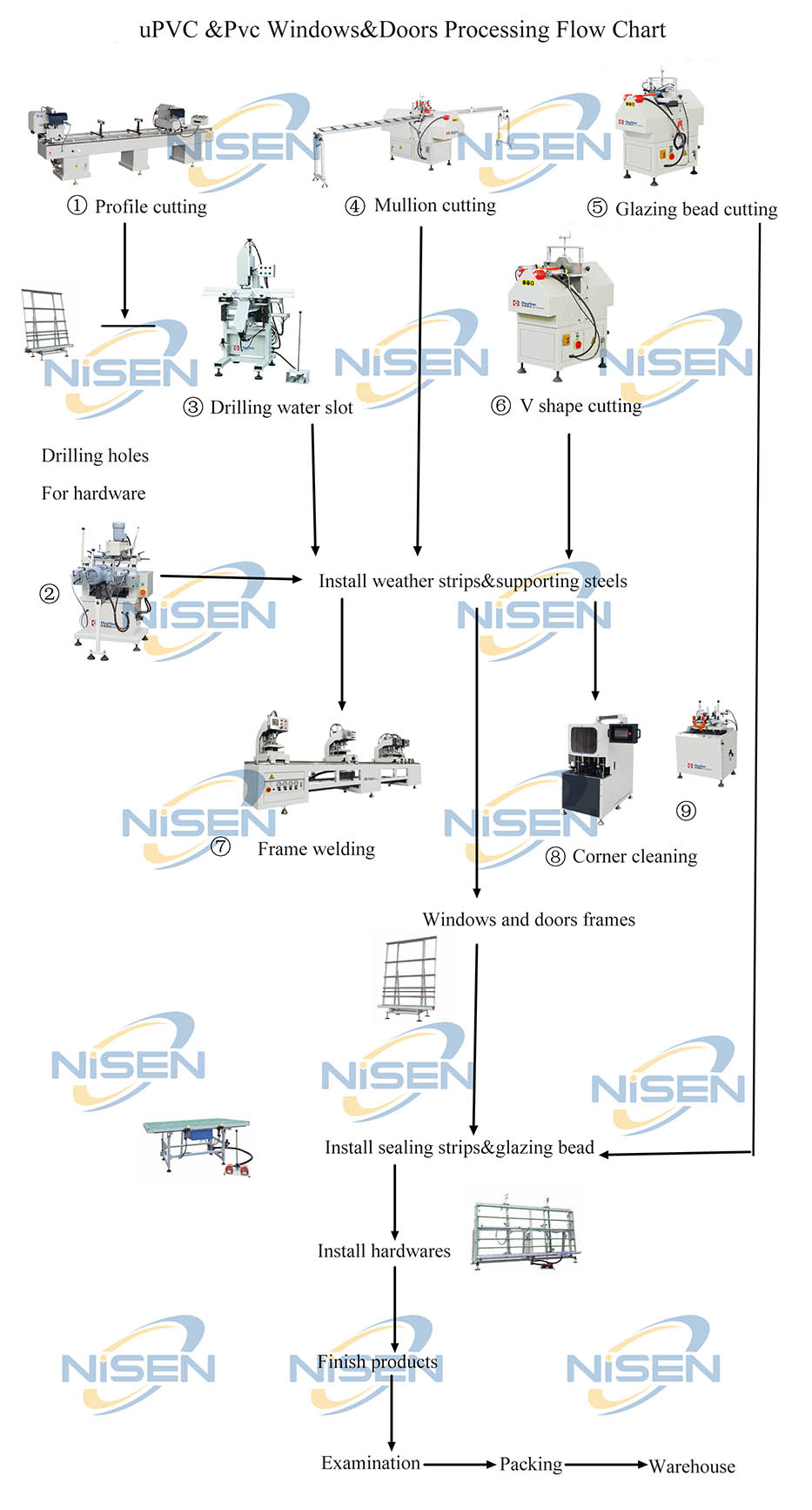What is UPVC?
UPVC stands for unplasticised polyvinyl chloride – can you see why its name is usually shortened? – and it’s an incredibly versatile material that can be used for things as far and wide as windows, doors, plumbing materials and even dental retainers.
The first recorded commercial use of UPVC comes from Germany in the 1960s. Before that, manufacturers were using polyvinyl chloride (PVC) as a material, but its low lifespan made it a less than desirable material. Manufacturers soon discovered that by not adding plasticisers, PVC was much more resilient. Thus, modern UPVC was born!
The machine for making UPVC windows and doors:
More information, please contact us 008615726179971 (WeChat&WhatsApp).
The benefits of UPVC windows and doors:
1. Customisable
UPVC windows, doors have a series of customisable shapes, styles and imitation effects such as wood grain.
Installation companies and manufacturers can now tailor UPVC products to your desired specifications.
2. Security
The security of a property or home is paramount to any window or door installation. This is why UPVC exceeds expectations with an ultra-light yet sturdy frame, used in conjunction with various locking combination and a double glazed pane of glass will prevent an intruder from breaking in.
3. Insulation
UPVC is a low conductor of heat meaning when fitted correctly it will form a closed air system minimising the heat loss, experienced by non-insulating materials.
4. Low Maintenance
UPVC is a low maintenance material, unlike natural materials which require annual sanding, varnishing and repainting. Windows & doors made from UPVC can last for decades without any sign of weathering, the only upkeep is a wipe down clean with soapy water to prevent staining and remove grim or dirt.
5. Durability
The material is incredibly tough meaning the frames can cope against the most extreme elements and are not affected by rot and corrosion.
6. Ventilation
UPVC windows can come in various window style configurations providing an efficient ventilation system with effective airflow into a room.
7. Eco-Friendly
The average life span of UPVC windows can range between 40-80 years and are made from mostly recyclable materials to sustain minimal long-term impact on the environment.
8. Weather Resistant
Weathering is a common problem amongst most materials used on the exterior of a property. UPVC windows and doors do not react with water and air and are not susceptible to the natural elements, meaning a longer life span without ageing.
9. Soundproofing
The UPVC material works in combination with the double glazed window panels to help decrease the amount of noise that can pass into your home. Most UPVC windows and doors should reduce external noise by up 50% compared traditional counterparts.
Post time: Jul-14-2022
